Ebola outbreak declared in Democratic Republic of the Congo
World Health Organisation confirms resurgence of deadly disease one year after end of epidemic in West Africa
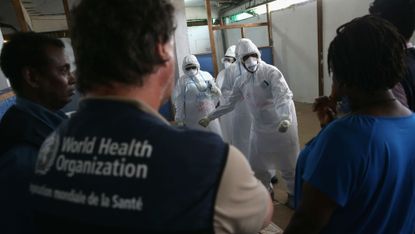
A new Ebola outbreak has been declared in the Democratic Republic of Congo, one year after the end of the epidemic in West Africa that killed 11,000 people.
The World Health Organisation (WHO) confirmed two cases of the deadly virus in the east African nation and is investigating another 17 suspected cases.
Three deaths have so far been reported and six patients have been hospitalised.
Subscribe to The Week
Escape your echo chamber. Get the facts behind the news, plus analysis from multiple perspectives.

Sign up for The Week's Free Newsletters
From our morning news briefing to a weekly Good News Newsletter, get the best of The Week delivered directly to your inbox.
From our morning news briefing to a weekly Good News Newsletter, get the best of The Week delivered directly to your inbox.
In a statement, the DRC health ministry said: "Our country must confront an outbreak of the Ebola virus that constitutes a public health crisis of international significance."
Health minister Oly Ilunga told the Congolese "not to panic" despite this being a "national health emergency with international significance".
He added that the "authorities have taken all necessary measures to respond quickly and efficiently to this new outbreak".
Over the weekend, Dr Matshidiso Moeti, WHO's regional director for Africa, travelled to the capital Kinshasa to discuss the response plan with leading authorities in the country, while Gavi, the global vaccine alliance, confirmed 300,000 vaccines for the disease were available in case of an outbreak on the scale of the 2014-16 epidemic.
BBC global health correspondent Tulip Mazumdar said the outbreak was "extremely worrying" for communities living in affected regions, but added that the DRC "has stamped out more Ebola outbreaks than any other place on earth".
There have been eight Ebola outbreaks since 1976, she adds, with the last one, in 2014, being brought to an end within four months.
How the latest outbreak has developed is unclear, but previous ones have been blamed on civilians coming into contact with infected "bush meat" such as apes, says The Independent.
In January 2016, WHO declared the end of a two-year Ebola epidemic across Liberia, Sierra Leone and Guinea that led to 28,000 people being infected with the virus.
Create an account with the same email registered to your subscription to unlock access.
Sign up for Today's Best Articles in your inbox
A free daily email with the biggest news stories of the day – and the best features from TheWeek.com
-
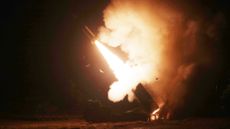 Ukraine using covert US long-range missiles
Ukraine using covert US long-range missilesSpeed Read The weapons are part of a $1 billion Ukraine aid package
By Justin Klawans, The Week US Published
-
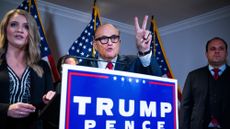 Arizona grand jury indicts 18 in Trump fake elector plot
Arizona grand jury indicts 18 in Trump fake elector plotSpeed Read The state charged Mark Meadows, Rudy Giuliani and other Trump allies in 2020 election interference case
By Peter Weber, The Week US Published
-
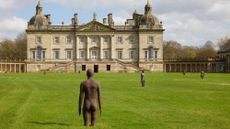 Antony Gormley's Time Horizon – a 'judgmental army' of 100 cast-iron men
Antony Gormley's Time Horizon – a 'judgmental army' of 100 cast-iron menThe Week Recommends Sculptures are 'everymen questioning the privilege of their surroundings' at the Norfolk stately home
By Adrienne Wyper, The Week UK Published
-
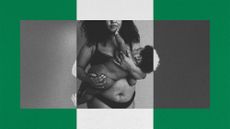 Nigeria's worsening rate of maternal mortality
Nigeria's worsening rate of maternal mortalityUnder the radar Economic crisis is making hospitals unaffordable, with women increasingly not receiving the care they need
By Harriet Marsden, The Week UK Published
-
 Dengue hits the Americas hard and early
Dengue hits the Americas hard and earlySpeed Read Puerto Rico has declared an epidemic as dengue cases surge
By Peter Weber, The Week US Published
-
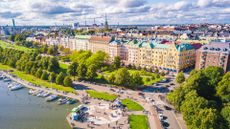 How happy is Finland really?
How happy is Finland really?Today's Big Question Nordic nation tops global happiness survey for seventh year in a row with 'focus on contentment over joy'
By Harriet Marsden, The Week UK Published
-
 How Tehran became the world's nose job capital
How Tehran became the world's nose job capitalUnder the radar Iranian doctors raise alarm over low costs, weak regulation and online influence of 'Western beauty standards'
By Harriet Marsden, The Week UK Published
-
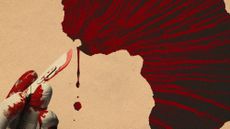 Africa's renewed battle against female genital mutilation
Africa's renewed battle against female genital mutilationUnder the radar Campaigners call for ban in Sierra Leone after deaths of three girls as coast-to-coast convoy prepares to depart
By Harriet Marsden, The Week UK Published
-
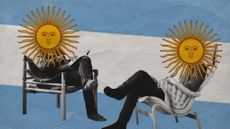 Argentina: the therapy capital of the world
Argentina: the therapy capital of the worldUnder the radar Buenos Aires natives go hungry to pay for psychoanalysis, amid growing instability, anxiety – and societal acceptance
By Harriet Marsden, The Week UK Published
-
 Does declining birth rate spell doom for Britain?
Does declining birth rate spell doom for Britain?Today's Big Question Ageing population puts pressure on welfare state, economy and fabric of society, while fertility is rising on populist agendas
By Harriet Marsden, The Week UK Published
-
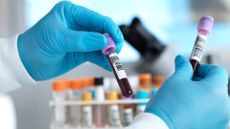 How a new blood test could revolutionise sepsis diagnosis
How a new blood test could revolutionise sepsis diagnosisThe Explainer Early results from ongoing trial suggest faster identification of deadly condition is possible
By The Week Staff Published